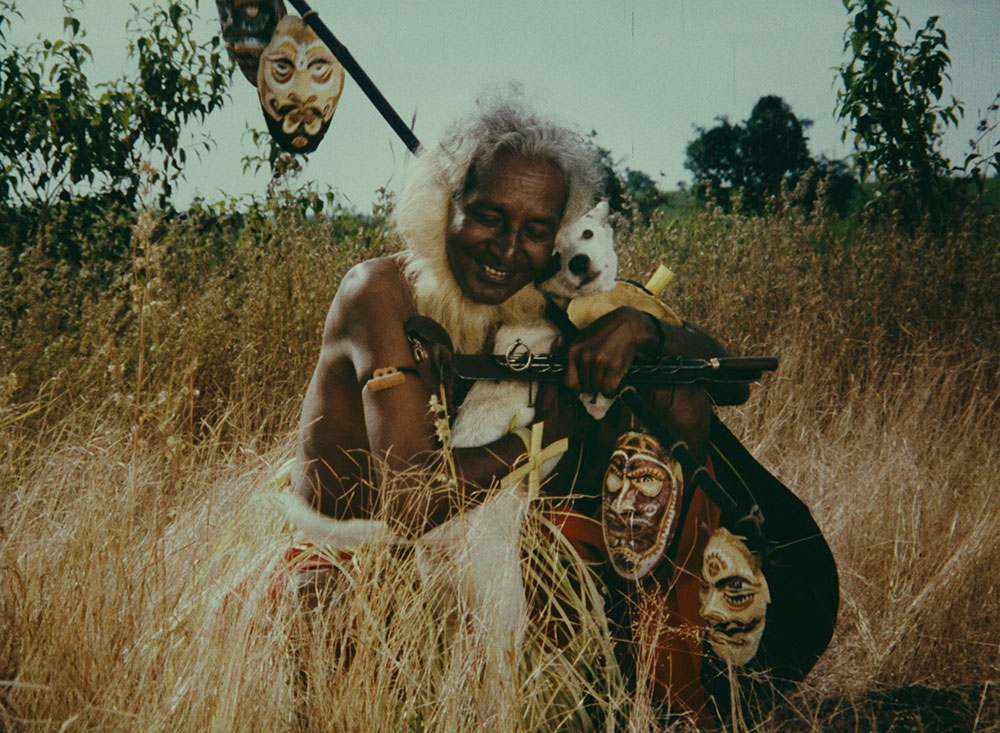To a group of village children running around, singing, dancing, and playing pranks, an old woman says that she will “call Kummatty” on them. When the Pied Piper figure of Govindan Aravindan’s Kummatty (1979) arrives, he carries a large staff from which hang several painted ornaments that rattle along to the songs he sings. The legend of Kummatty is steeped in the folklore of the Malabar region of northern Kerala, the state in which Aravindan was born and brought up, but it is only the foundation of the film. The director’s primary preoccupation here is the representation of the geographical and cultural landscape. The people are as figurines moving across the film’s grandiose yet intimate rural stages.
So many of the shots—composed by Aravindan’s close collaborator Shaji N. Karun, who would go on to become one of India’s greatest filmmakers himself—capture the village as a massive tapestry of wheat fields, ponds, thickets of trees, and rock formations, enveloped by a tremendous sky. Kummatty dances into the village on a sun-dipped gravel path, the lens flare giving him a cosmic radiance, foreshadowing the spell he will cast on the village.
All three of Govindan Aravindan’s best-known films, Thamp (1978), Esthappan (1980), and Kummatty, center around artists and performers; they consider such crafts in relation to the metaphysical, be it nature, folklore, or established religion. The songs in Kummatty, composed by M.D. Radhakrishnan and penned by Kavalam Narayana Panicker, are simple and repetitive—children’s tunes whose circular rhythms have a hypnotic effect. The magic realism, when the spell takes hold, renders the movie and its carefree child protagonists deeply clouded, forcing a reflection on their life in the village. That fleeting happiness should not be taken for granted might be a moralist interpretation of the plot, but Kummatty isn’t so definitive as Aesop’s Fables. Like its titular character, it comes, casts its spell, and goes, leaving you enchanted and wondering.
Kummatty screens tonight, December 7, in a recent restoration at Anthology Film Archives as part of “World Cinema Project.” It will be preceded by Shadi Abdel Salam’s The Eloquent Peasant (1970).



